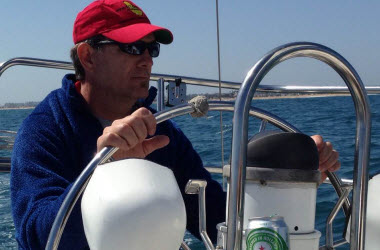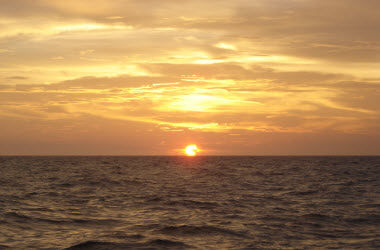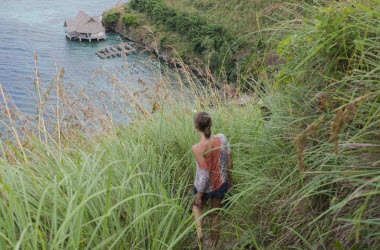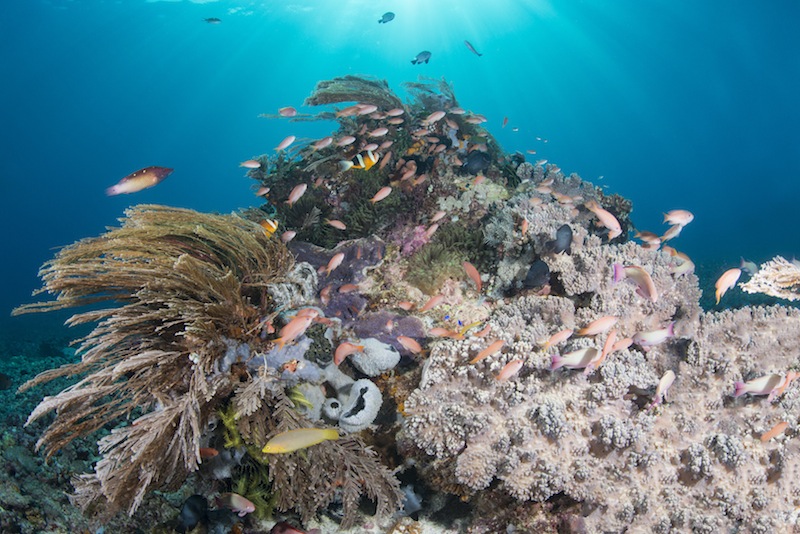February 14, 2017
Recently I went on my first cruise through the western Caribbean. 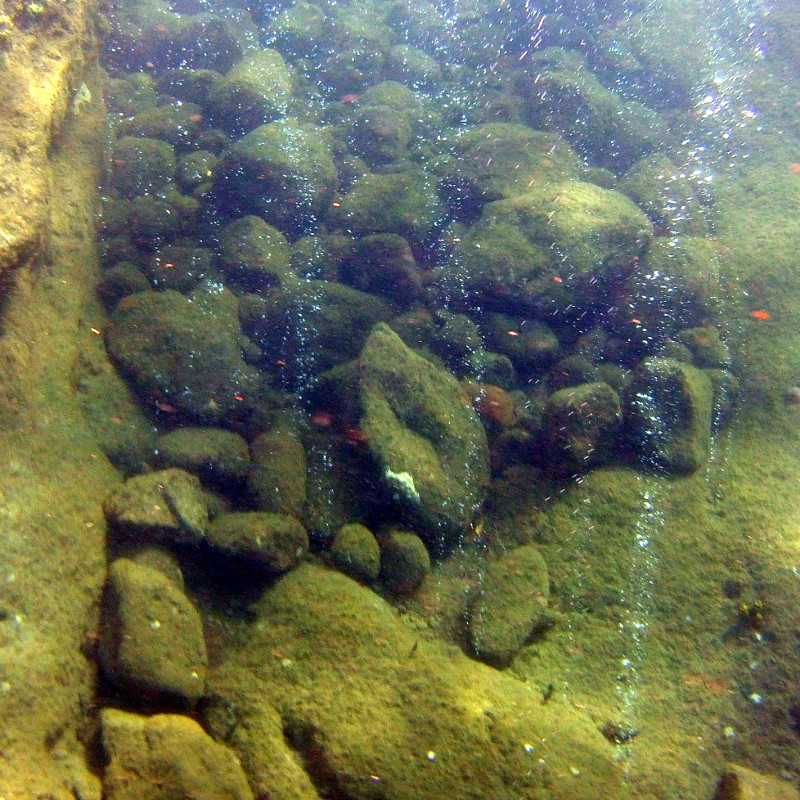 It was a nice reprieve from the doldrums of a Colorado winter and a fascinating look at the costs and benefits of an all-inclusive experience. In particular I found the difference between two separate snorkeling expeditions and the implications of tourism on the ocean interesting.
It was a nice reprieve from the doldrums of a Colorado winter and a fascinating look at the costs and benefits of an all-inclusive experience. In particular I found the difference between two separate snorkeling expeditions and the implications of tourism on the ocean interesting.
When in Dominica I was treated to two different sites off the coast, which highlighted the natural beauty of the island and its coastline. The main attraction of the expedition was the “champagne reef” of tiny bubbles floating to the surface created from volcanic activity in the area. Though enjoying the colorful fish and gigantic sponges, it wasn’t until I returned from my trip and talked with my co-workers did I understand what I was truly seeing.
Flipping through my photos it was pointed out that all of the sea urchins, sponges, and sea fans were able to propagate in no small part to the now long dead coral. 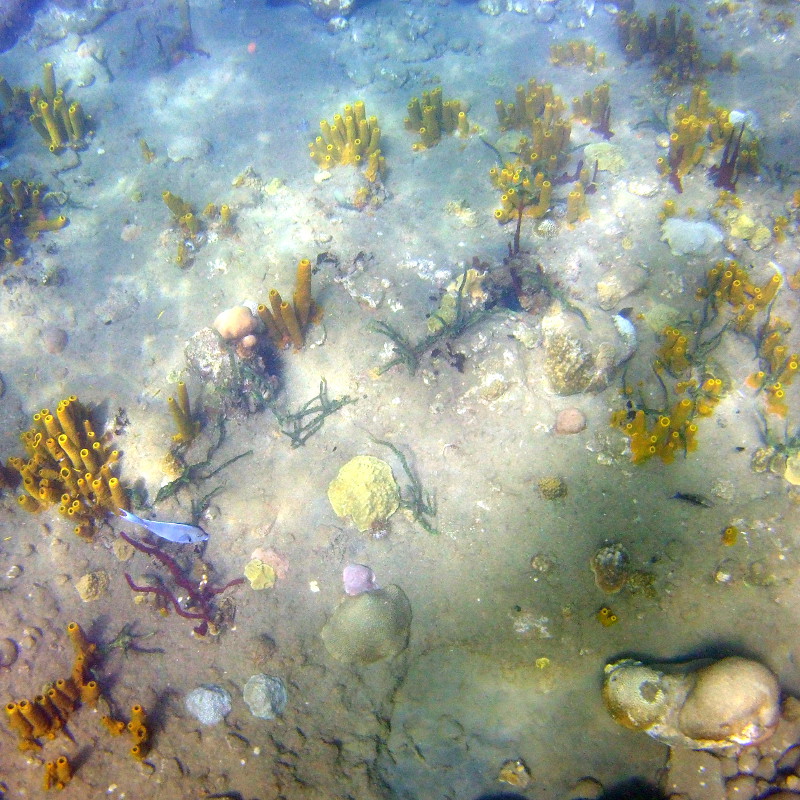 Since I live in a land locked state it was still neat to see the underwater habitat, but knowing that the biodiversity of the area had to decrease was just saddening. To think about all of the other fish, invertebrates, and other manner of life present in a coral reef that could have been preserved would have made for such an amazing experience. Though not through direct human action, the once thriving coral reef has been replaced a spattering of sea urchins and sponges.
Since I live in a land locked state it was still neat to see the underwater habitat, but knowing that the biodiversity of the area had to decrease was just saddening. To think about all of the other fish, invertebrates, and other manner of life present in a coral reef that could have been preserved would have made for such an amazing experience. Though not through direct human action, the once thriving coral reef has been replaced a spattering of sea urchins and sponges.
In contrast the snorkeling expedition in Barbados highlighted a couple of things humans have done that can both help and hurt wildlife. The first site we visited was an encounter with sea turtles. 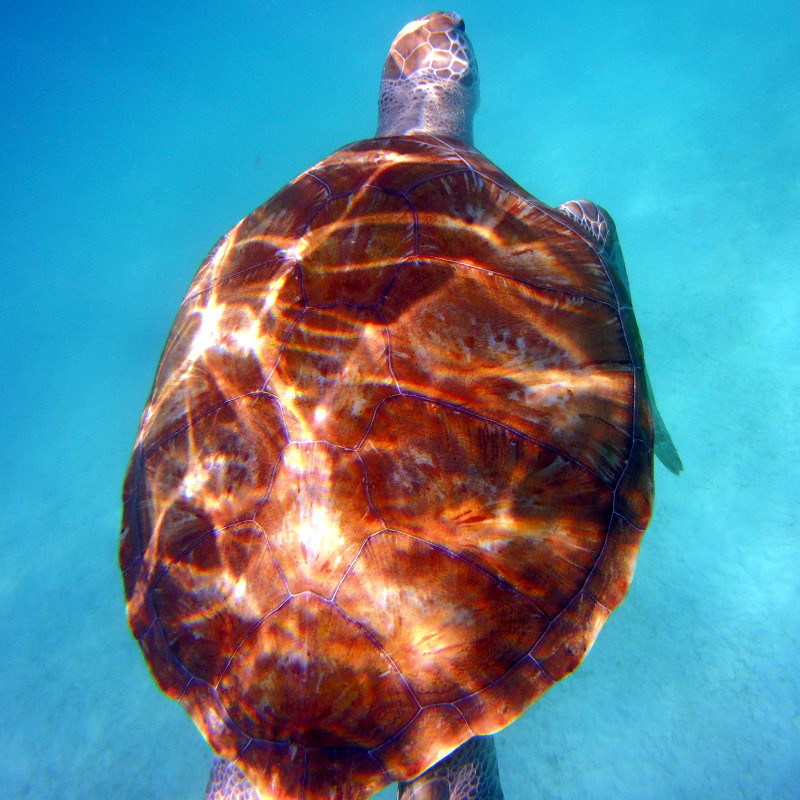 While it was neat to see these giant reptiles outside of an aquarium, I wondered at what effect humans feeding the turtles had on the turtle’s natural instincts. Are the turtles becoming dependent on the humans for food? Did their nesting site change with such easy access to food? Would future generations of turtles become dependent on humans and not learn how to find food on their own? I recognize that the business will continue to flourish if the snorkel shop continues to feel the turtles and can provide reliable viewing of them. On the other hand, as a diver, I would much rather see a sea turtle out in the wild, without any human intervention.
While it was neat to see these giant reptiles outside of an aquarium, I wondered at what effect humans feeding the turtles had on the turtle’s natural instincts. Are the turtles becoming dependent on the humans for food? Did their nesting site change with such easy access to food? Would future generations of turtles become dependent on humans and not learn how to find food on their own? I recognize that the business will continue to flourish if the snorkel shop continues to feel the turtles and can provide reliable viewing of them. On the other hand, as a diver, I would much rather see a sea turtle out in the wild, without any human intervention.
The second snorkeling site was something completely different. A decommissioned battleship was sunk just off the coast of the island in the early 20th century for all manner of sea creatures to make their home. 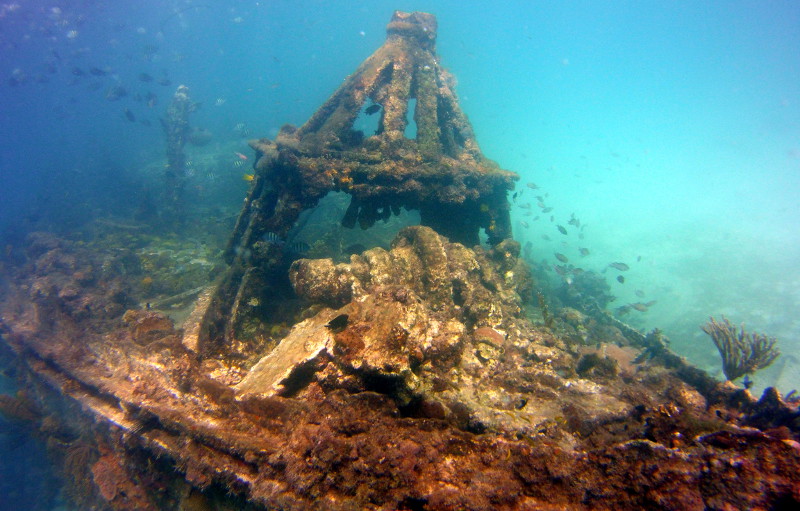 Though not a natural structure, it created an ecosystem that wouldn’t have otherwise developed there. It seems to be a relatively common practice to sink retired ships off the coast of tropical islands to create new habitats for sea creatures. Not only does that help with tropical marine life, but creates more opportunities for sustainable tourism.
Though not a natural structure, it created an ecosystem that wouldn’t have otherwise developed there. It seems to be a relatively common practice to sink retired ships off the coast of tropical islands to create new habitats for sea creatures. Not only does that help with tropical marine life, but creates more opportunities for sustainable tourism.
Experiencing the effect of tourism on the natural wonders of the Caribbean has been a mixed bag. If I wasn’t constrained by the limits of a cruise ship I would have sought out more eco-friendly experiences. Though going through the cruise company I feel that I experienced what the average cruising patron would see. My hope is that with time and education people will understand their impact on the ocean and help ensure that the underwater experiences we enjoy now will last for generations to come.
